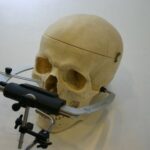
The face-bow is a device for recording the relationship of the maxillary arch to anatomical reference points so they can be transferred to an articular. Some consider face-bow transfer to be essential for the avoidance of occlusal errors. However studies has suggested that there is no difference in overall patients satisfaction or prosthodontists rating of dentures with or without the use of a face-bow.
The aim of this review was to evaluate the effect of face‐bow transfer on the outcome of a dental prosthesis fabrication.
Methods
Searches were conducted in the Cochrane Library, PubMed and Science Direct databases. Randomised controlled trials (RCTs) assessing the denture quality, comfort, patient satisfaction, aesthetics, and time required to fabricate a dental prosthesis with or without the use of face‐bow were considered. Two reviewers independently selected studies, extracted data and assessed risk of bias using the Cochrane domains-based tool. A narrative summary was presented.
Results
- 15 RCTs involving a total of 406 patients were included.
- 4 RCTs were considered to be at low risk of bias, 6 at medium risk and 5 at high risk.
- 9 studies evaluated patient satisfaction.
- 3 evaluated fabrication time.
- 3 evaluated postinsertion occlusal adjustment requirements.
- 2 evaluated cost of production.
- 2 measured the coincidence of centric relation and centric occlusion.
- No studies evaluated removable partial dentures or fixed prostheses.
- Only one study reported better outcomes with face-bow use.
Conclusions
The authors concluded: –
The use of the face-bow did not yield superior results for the quality of the prosthesis. Therefore, there is no evidence for the utility of face-bow transfer in complete denture treatment. However, no inference could be drawn for its utility in partial denture prosthodontics as there was no study to draw an inference.
Comments
The reviewers have searched 3 major databases only including RCTs. The key findings are only briefly summarised with the key elements of the included studies presented in a table format. No quantitative analysis was undertaken presumably because of the range of outcome measures in the primary studies. A simple count of the studies indicates that no difference with face-bow use was reported in 8 out of the 15 studies while 6 studies reported better outcomes without face-bow use. Two of these 6 studies reporting lower cost and shorter clinical time without face-bow use. The findings add to earlier studies that find little difference between simplified and traditional approaches to denture fabrication (Dental Elf – 23rd Oct 2014).
Links
Primary Paper
Suman V, Sonnahalli NK, Chowdhary R. Use of Facebow device in prosthodontics: A systematic review on randomized control trials. J Indian Prosthodont Soc. 2021 Jan-Mar;21(1):11-18. doi: 10.4103/jips.jips_197_20. PMID: 33835064; PMCID: PMC8061434.
Other references
Dental Elf – 23rd Oct 2014
Picture Credits
By Hanabishi – “Hanabishi’s file”, Public Domain.
